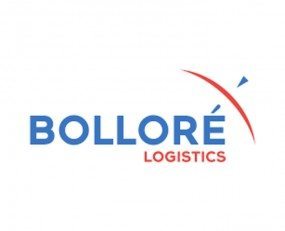
After a truly transformational 2017, France’s Bolloré continued to grow in 2018, although its headline financials were also clouded by several accounting adjustments that rendered year-on-year comparisons particularly challenging.
Group revenues – up 7% to €23bn at constant scope and exchange rates – rose 26% on a reported basis, following IFRS-15 accounting restatements, and including €13.9bn from Vivendi, which was fully consolidated in early 2017. Meanwhile, goodwill and intangibles amounted to 44% of total assets, and were virtually unchanged in absolute terms.
(As reported, revenue was up 26%, reflecting an additional €3.5bn from change in the scope of consolidation, stemming mainly from Vivendi’s full consolidation over 12 months in 2018 (vs. eight months in 2017), and adverse foreign exchange impacts of – €477m)
Bollorés logistics division grew 9%, driven by higher sea and air freight volumes, while Bolloré Africa Logistics (+9%) experienced favourable trends thanks to higher port terminal volumes.
Moreover, rail activity “expanded thanks to growth in goods traffic, particularly at Sitarail,” it said, and it grew at a 25% clip its oil logistics activities “thanks to higher prices for petroleum products and a slight increase in volumes”.
Elsewhere, it hit “4% growth in the communications business, attributable mainly to Vivendi (+4%), which benefited from growth at UMG (+10%)”.
Unadjusted, reported group EBITDA came in at €2.7bn, up 33% versus comparable, reported 2017 numbers, while operating income, or EBIT, hit €1.3bn – up 25% at constant scope and exchange rates (+17% on a reported basis).
Growth in transportation and logistics (T&L) activities boosted operating income in its T&L unit, with EBIT up to €511m (+9% at constant scope and exchange rates; +4% on a reported basis).
The main factors that contributed to that growth rate, it noted, were a good performance of port terminals in Africa and increased freight forwarding volumes, particularly in Asia, although a slight decline in oil logistics EBIT to €34m (-5% at constant scope and exchange rates) – due to negative inventory swings – mildly impacted its T&L’s financials.
Net debt amounted to €4.8bn, and was flat against 2017 numbers, “taking into account the increase in the stake in Vivendi in 2018, representing a financial investment of €2.5bn, and disposals of investments in Ubisoft, Fnac Darty and Telefonica in a total amount of €2.2bn”.
It added that “as of February 28, 2019, the group’s liquidity position, including undrawn available amount and liquid securities, represented approximately €2.1bn. Including Vivendi, the amount stands at approximately €9bn.”
At board level, Mr Cyrille Bolloré was unanimously appointed as chairman and chief executive by the board of directors, while “Vincent Bolloré informed the board of directors that he will not seek the renewal of his office as director, which expires next May, having then entered into his 68th year”.
Source: Transport Intelligence, March 19, 2019
Author: Alessandro Pasetti